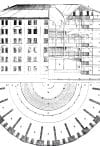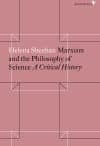Marxism

Capitalism’s two main underpinnings are control and exploitation/expropriation. While there are many sites of control they are all generally supportive of the interests of capital, namely, the endless drive to accumulate wealth. They all help to ensure that we behave so that the system continues to reproduce itself. Since workplaces are the sites where profits are extracted from our labor, it is here that control is most critical. | more…

What made István Mészáros’s life so fascinating, and relevant to issues of socialist construction, was that, having seen both sides of the Cold War, he came to perceive both “real socialism” and twentieth-century capitalism as two variants of the same system. He called this the capital system. The basic commonality among most countries of both the East and the West in the twentieth century was the extraction of surplus labor from workers who did not control their own work processes. | more…

István Mészáros was a global thinker strongly committed to anti-imperialist struggles. In this respect, he allied himself with those fighting for socialist transformation in the Philippines, Nicaragua, Venezuela, Brazil, and elsewhere. He argued that in the descending phase of capitalism there was a “downward equalization of the rate of exploitation,” by which he meant a race to the bottom in wages and working conditions, enforced by a global system of monopolistic competition. | more…

Increasing numbers of left-wing activists around the world are turning to Vincent Bevins’s The Jakarta Method to learn more about the horrific atrocities committed by the United States against peoples’ struggles for the right to self-determination in the so-called postcolonial era. In particular, the book describes how imperialist expansion destroyed revolutionary struggles in the third world. | more…
The Council on Foreign Relations (CFR) is the ultimate agenda-setting, strategic planning, and consensus-forming organization of the U.S. capitalist ruling class. The latest book to come out of the CFR orbit, Strategy of Denial (2021), thus provides an opportunity to concretely observe how the monopoly capitalist ruling class is preparing the people of the United States for what could be a catastrophic world war. | more…

From Marx and Engels to COVID-19 and COP26
The history of Marxism in relation to science is extraordinarily dense and dramatic. Although it is a fascinating and important story, it is one increasingly forgotten. | more…

The term racial capitalism is a bit of a shibboleth. Those who invoke the phrase draw from a longstanding tradition of radical scholarship that brings attention to the material force of racialism in systems of capitalist domination. There is, however, a mounting critique that questions the term’s usefulness, casting doubt on the scholarly project initiated by Cedric Robinson. In the face of such concerns, Histories of Racial Capitalism is a much needed contribution. | more…

The rapid financialization of nature is promoting a Great Expropriation of the global commons and the dispossession of humanity on an unprecedented scale. | more…

A new poem by Marge Piercy. | more…

In Beyond Leviathan: Critique of the State, István Mészáros closes a trilogy that was first outlined in Marx’s Theory of Alienation, later greatly developed in Beyond Capital, and is now concluded in this new work. Throughout his immensely rich work, Mészáros developed, amid many original formulations, an increasingly relevant concept: capital’s order of social metabolic reproduction. | more…
Did Karl Marx have a theory of race and capitalism? Not exactly, but he theorized on these issues over four decades and much of what he wrote still speaks to us today. At a time of global and U.S. struggles for liberation in the face of a deeply racialized fascist threat, these writings are worth revisiting. | more…

For Georg Lukács, revolution represented the realm of the objectively possible. He saw the tragedy of action as a necessary element in a movement toward greater human freedom synonymous with historical necessity. | more…








